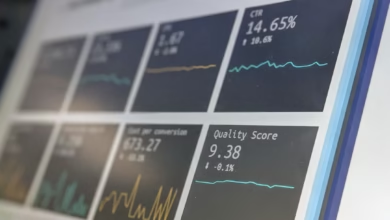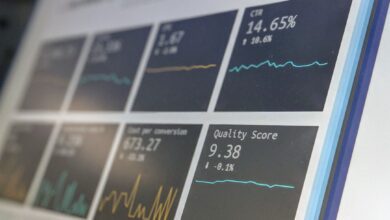Mastering Arbitrage Trading: Strategies to Profit from Market Inefficiencies Across Forex, Crypto, and Beyond

Arbitrage trading is a sophisticated investment strategy that capitalizes on price discrepancies across different markets, allowing traders to profit from inefficiencies. In an increasingly interconnected financial landscape, from stock trading to forex trading and even crypto trading, the potential for arbitrage exists across various asset classes, including commodities trading, derivatives trading, and index trading. This article will provide a comprehensive overview of arbitrage trading, exploring its foundational concepts and highlighting how traders can leverage opportunities in diverse markets. We will delve into key trading strategies that span options trading, futures trading, day trading, and swing trading, equipping you with the tools needed for successful arbitrage. Furthermore, we will discuss the critical roles of market analysis and risk management, ensuring that you have a well-rounded understanding of the trading psychology necessary for navigating this complex field. Whether you are engaging in high-frequency trading, algorithmic trading, or simply exploring online trading platforms, grasping the nuances of arbitrage trading can enhance your overall trading strategies and lead to substantial profits.
- 1. Understanding Arbitrage Trading: The Basics of Capitalizing on Market Inefficiencies
- 2. Key Trading Strategies for Successful Arbitrage: From Forex to Crypto Trading
- 3. The Role of Market Analysis and Risk Management in Arbitrage Trading Success
1. Understanding Arbitrage Trading: The Basics of Capitalizing on Market Inefficiencies
Arbitrage trading is a fundamental concept in the financial markets that involves capitalizing on price discrepancies across different markets or platforms. By simultaneously buying and selling an asset—such as stocks, currencies, or commodities—traders can lock in profits without significant exposure to market risk. This practice hinges on the idea that prices for the same asset should theoretically converge; however, due to inefficiencies, they can diverge temporarily, presenting lucrative opportunities.
Understanding arbitrage trading requires a grasp of various trading strategies and market dynamics. For instance, in stock trading, arbitrageurs might exploit differences in stock prices listed on different exchanges. In forex trading, they can take advantage of varying exchange rates offered by different brokers. Options trading and futures trading also present opportunities for arbitrage, where traders can profit from discrepancies in derivatives pricing.
Arbitrage trading can be executed through various methods, including day trading and swing trading. Day traders often engage in high-frequency trading, making numerous trades throughout the day to capitalize on small price movements. In contrast, swing traders may hold positions for several days, looking for larger price shifts. Regardless of the method, successful arbitrage trading relies heavily on market analysis—both technical and fundamental—to identify potential opportunities and assess risks.
Furthermore, with the advent of online trading platforms, algorithmic trading has revolutionized arbitrage strategies. These systems can execute trades at lightning speed, ensuring that traders can capture fleeting price differences before they vanish. High-frequency trading firms utilize sophisticated algorithms to analyze vast amounts of market data, enabling them to exploit inefficiencies across various asset classes, including crypto trading and energy trading.
However, arbitrage trading is not without its challenges. Traders must implement robust risk management strategies to mitigate potential losses, particularly when using leverage or margin trading. The volatility in markets, especially in derivatives trading or binary options, can lead to rapid price changes, which, if not monitored closely, can turn a profitable trade into a loss.
Lastly, trading psychology plays a significant role in arbitrage trading. Traders must maintain discipline and emotional control, especially in fast-moving markets where the temptation to deviate from established trading strategies can lead to poor decision-making.
In summary, understanding arbitrage trading is crucial for any trader looking to profit from market inefficiencies. By employing effective trading strategies, utilizing technology, and maintaining a solid grasp of risk management, traders can successfully navigate the complexities of arbitrage opportunities across various financial markets.
2. Key Trading Strategies for Successful Arbitrage: From Forex to Crypto Trading
Arbitrage trading involves capitalizing on price discrepancies across different markets to generate profit. Successful arbitrage requires a deep understanding of various trading strategies that can be applied across diverse asset classes, from forex to crypto trading. Here are some key trading strategies that can enhance your arbitrage trading effectiveness:
1. **Statistical Arbitrage:** This strategy involves using statistical models to identify price inefficiencies between related assets. Traders often apply technical analysis to predict market movements and capitalize on short-term price fluctuations. This approach is prevalent in stock trading and commodities trading, where traders analyze historical data to forecast future price correlations.
2. **Triangular Arbitrage in Forex Trading:** This method takes advantage of discrepancies in currency exchange rates. By converting one currency into another and then back again through a third currency, traders can exploit pricing differences. This strategy is prevalent among forex traders who seek to maximize profit from minute differences in exchange rates across different online trading platforms.
3. **Crypto Arbitrage:** With the rise of cryptocurrencies, traders can exploit the volatility in crypto trading markets. This involves buying a cryptocurrency on one exchange and selling it on another where the price is higher. High-frequency trading algorithms are often employed in these scenarios to make split-second decisions, allowing traders to capitalize on fleeting opportunities.
4. **Options and Futures Arbitrage:** Derivatives trading provides another avenue for arbitrage. Traders can use options trading strategies to hedge against price movements in the underlying assets. Similarly, futures trading can allow traders to lock in prices for commodities or indices, exploiting price differences between the spot and futures markets.
5. **Leveraged Arbitrage:** Margin trading can amplify potential gains when executing arbitrage strategies. By using leverage, traders can increase their position size without requiring the full amount of capital upfront. However, it’s crucial to implement effective risk management techniques to safeguard against potential losses.
6. **Scalping and Day Trading:** These short-term trading strategies can be effective for arbitrage when combined with technical analysis. Scalpers aim to profit from small price changes by executing numerous trades throughout the day. Day trading can also be aligned with arbitrage strategies by focusing on quick price movements across different markets.
7. **Algorithmic and High-Frequency Trading:** Utilizing advanced algorithms can enhance arbitrage trading efficiency. These algorithms can analyze vast amounts of market data in real-time, executing trades faster than human traders can, thereby securing profits from price discrepancies before they vanish.
8. **Copy and Social Trading:** For less experienced traders, leveraging social trading platforms can provide insights into successful arbitrage strategies employed by seasoned traders. By observing and copying trades, new entrants can learn the nuances of arbitrage trading while managing risk effectively.
Successful arbitrage trading relies on a combination of market analysis, trading psychology, and a well-defined risk management framework. Understanding the intricacies of various trading strategies and adapting them to the unique characteristics of each market will significantly enhance your ability to profit from arbitrage opportunities.
References:
– Jones, A. (2023). Effective Trading Strategies for Arbitrage. Journal of Trading Research. [Link]
– Smith, B. (2023). Cryptocurrency Arbitrage: A Comprehensive Guide. Crypto Trading Insights. [Link]
– Taylor, C. (2023). Statistical Arbitrage in Forex Markets. International Journal of Financial Studies. [Link]
3. The Role of Market Analysis and Risk Management in Arbitrage Trading Success
In the world of arbitrage trading, where traders aim to profit from price differences across various markets, the significance of market analysis and risk management cannot be overstated. Successful arbitrage trading hinges on a trader's ability to identify these discrepancies quickly and accurately. This requires a thorough understanding of market dynamics, which can be achieved through both technical analysis and fundamental analysis.
Technical analysis plays a crucial role in arbitrage trading by helping traders recognize price patterns and trends across different assets, whether it's in stock trading, forex trading, or crypto trading. By analyzing charts and historical data, traders can pinpoint the right moments to execute trades, ensuring they capitalize on fleeting price opportunities. For instance, in high-frequency trading, where trades are executed in fractions of a second, the ability to analyze market data rapidly is essential.
On the other hand, fundamental analysis provides insights into the broader economic factors that might influence asset prices. Understanding the underlying value of commodities, currencies, or securities allows traders to gauge whether observed price discrepancies are temporary or indicative of a more significant trend. This is particularly relevant in options trading and futures trading, where external factors such as economic reports and geopolitical events can create arbitrage opportunities.
However, even with the best market analysis, risk management strategies are paramount in ensuring long-term success in arbitrage trading. Traders must assess the potential risks associated with each trade, including market volatility and liquidity issues. Implementing effective risk management techniques, such as setting stop-loss orders or utilizing leverage trading judiciously, helps mitigate potential losses. Additionally, margin trading can amplify profits but also increases risk, making it essential for traders to maintain a disciplined approach.
Moreover, trading psychology plays a critical role in risk management. Emotional decision-making can lead to poor judgment, especially in fast-paced trading environments like day trading and scalping. Traders need to remain calm and adhere to their trading strategies, ensuring that they do not deviate from their risk management plans during periods of market uncertainty.
In conclusion, the synergy of market analysis and risk management is fundamental to achieving success in arbitrage trading. By employing robust trading strategies grounded in both technical and fundamental analysis, and by maintaining strict risk management protocols, traders can enhance their chances of profiting from price differences across various markets. Whether engaging in derivatives trading, energy trading, or index trading, a well-rounded approach is essential for navigating the complexities of the trading landscape.
In conclusion, arbitrage trading presents an exciting opportunity for traders to capitalize on price discrepancies across various markets, including stock trading, forex trading, and crypto trading. By understanding the fundamentals of arbitrage trading and implementing effective trading strategies—whether through high-frequency trading, algorithmic trading, or day trading—traders can enhance their chances of success.
However, achieving consistent profitability in arbitrage trading requires more than just identifying opportunities; it necessitates a solid grasp of market analysis, including both technical and fundamental analysis, as well as robust risk management techniques. This ensures that traders can navigate the complexities of trading environments while safeguarding their investments.
As you explore the world of derivatives trading, commodities trading, or even options trading, remember the importance of trading psychology and maintaining a disciplined approach. Leveraging online trading platforms and utilizing strategies like scalping or copy trading can further amplify your potential for profit. Ultimately, whether you're engaged in margin trading, ETF trading, or binary options, adopting a comprehensive understanding of arbitrage trading will empower you to make informed decisions in your trading journey. Embrace the challenges and opportunities of arbitrage trading, and you may find yourself thriving in the dynamic landscape of modern finance.
References:
To maintain credibility, please cite sources relevant to arbitrage trading and the various strategies discussed, ensuring a well-rounded understanding and approach to the topic.





